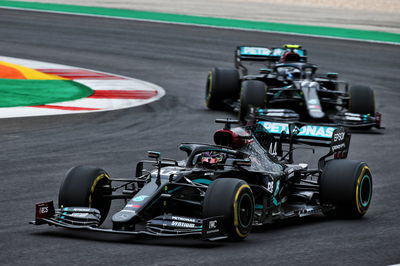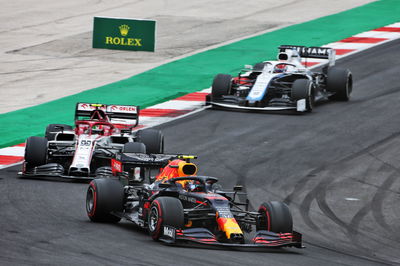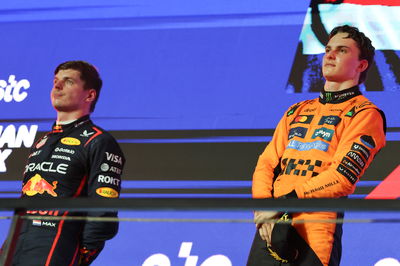Mercedes explain “robust” decision to deny Bottas Soft F1 tyres

Mercedes Formula 1 boss Toto Wolff says his side were “robust” as it kept Valtteri Bottas on his original strategy during the Portuguese Grand Prix.
Bottas recovered from an initial poor getaway to repass Max Verstappen and then pass struggling Mercedes teammate Lewis Hamilton in the opening sequence of corners, before picking off McLaren’s Carlos Sainz for the lead during a frantic opening few laps at Portimao.
The Finn stayed in front until Hamilton launched an attack to claim first place on Lap 20, before falling nearly 10 seconds behind the Briton by the time Mercedes made its one and only pitstops.
After learning Hamilton had switched onto the Hard compound for his final stint, Bottas requested Soft tyres for the final part of the race but Mercedes opted to stick to its planned strategy by putting both drivers onto Hards.
"We have done it on occasions, but it's always a tricky situation,” Wolff explained.
"If you ask the lead driver to put the hards on because you believe this is the right choice, and then the second driver starts to convince you about the other thing, it's very difficult to explain that you've basically reversed the cars.
"We don't want to interfere too much, and there will be situations where we ware going to allow these calls.”
Hamilton ultimately finished 25s clear of Bottas to claim a record-breaking 92nd career win and his eighth from the opening 12 rounds of the 2020 season, moving him 77 points ahead of Bottas in the championship.
Wolff pointed to the struggles of over drivers running on Softs in the final stages as proof that the Hards were ultimately the right call.
"We were pretty convinced that the hard was the better tyre," Wolff added.
"All data that we've seen from cars out there leaned towards the hard outperforming the medium and the soft. When you look at Checo [Perez] and Esteban [Ocon] at the end, the soft didn't function at all.
“It was actually the weakest tyre at the end of the race. We were pretty robust in our decision, because we expected it to be the better tyre."












